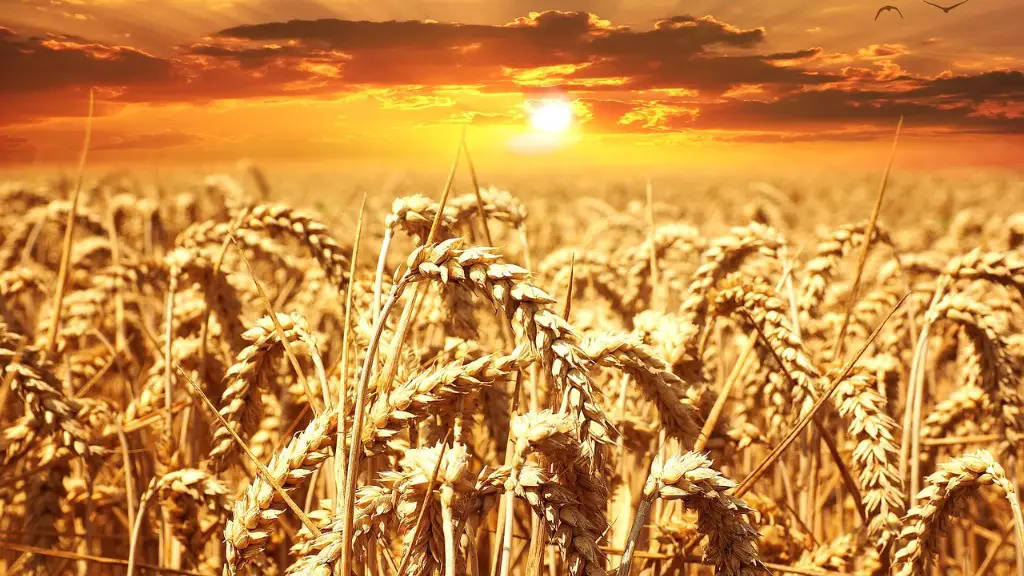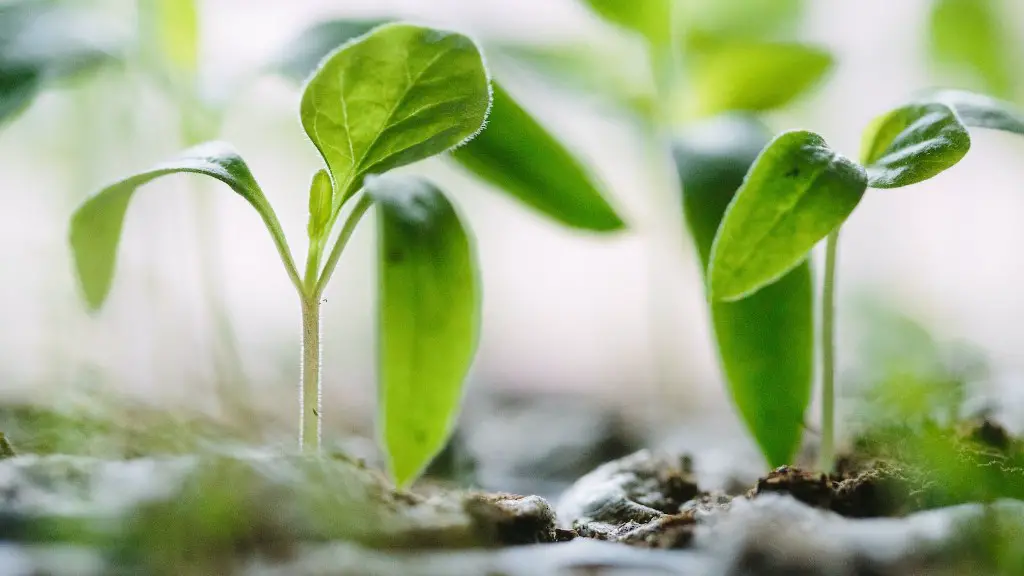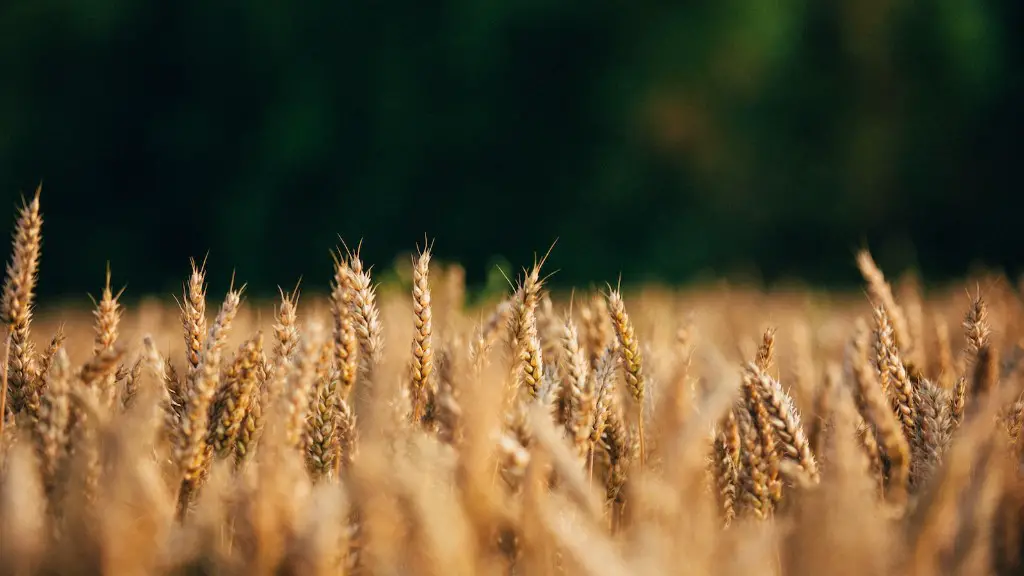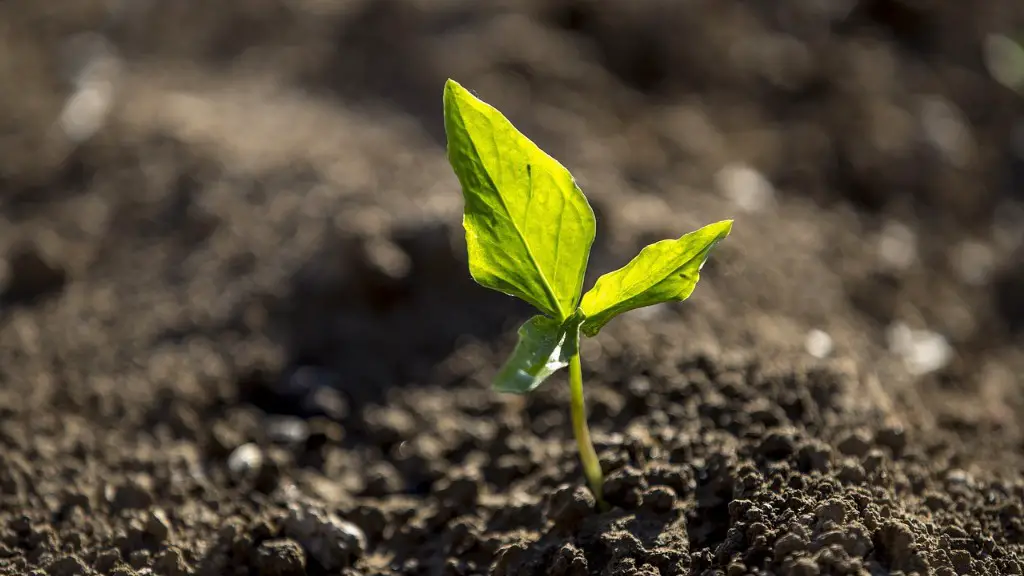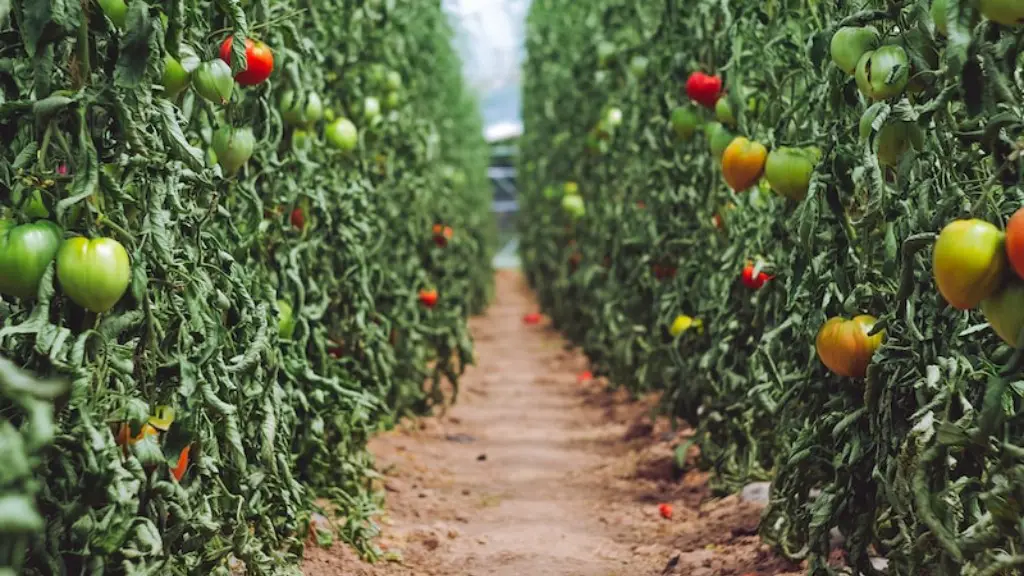Coral reefs are often called the rainforest of the sea because they are home to a wide variety of plant and animal species. In addition to providing habitat for many species of fish, coral reefs also support other marine life, including seabirds, crabs, and shellfish. Reefs also provide a buffer against shoreline erosion and can help protect coastal communities from storms and waves.
Despite their importance, coral reefs around the world are threatened by a number of human activities, including agriculture. Agricultural runoff can contain a variety of pollutants, including excess nutrients, pesticides, and sediments. These pollutants can damage coral reefs by causing them to become overgrown with algae, smothering the coral and making it more difficult for fish and other marine life to thrive. In addition, agricultural runoff can increase the levels of toxins in the water, which can lead to coral bleaching and eventually death.
By reducing agricultural runoff, we can help protect coral reefs and the many benefits they provide.
Coral reefs and agriculture affect each other in a number of ways. Agriculture can have a negative impact on coral reefs through activities such as coastal development, pollution, and overfishing. These activities can damage or destroy coral reefs, which provide habitat and food for a variety of marine life. In turn, healthy coral reefs can help to protect coasts from storms and erosion, and provide a source of income for people who rely on them for tourism and fishing.
How does agricultural affect coral reefs?
Coral reefs around the world are greatly affected by agricultural runoff. When wastewater enters the marine environment, it brings with it chemicals and bacteria that are harmful to coral reefs and humans. This pollution can cause bleaching, disease, and death in coral reefs. It is estimated that 25% of coral reefs are currently affected by agricultural runoff.
Coral aquaculture is a rapidly growing industry that is showing promise as a tool for restoring coral reefs. Coral reefs are dying off around the world, and aquaculture is providing a way to help restore them. Aquaculture is the cultivation of marine plants and animals for commercial purposes. Coral farmers grow corals in nurseries and then transplant them to reefs. This process can help to restore reefs that have been damaged by pollution, overfishing, and other threats.
How does agricultural runoff affect coral reefs
Corals are extremely sensitive to changes in water quality and can be easily killed by nutrient pollution and sediment runoff. Nutrient pollution enables the overgrowth of algae which can kill corals by smothering them, blocking their access to sunlight and promoting coral disease. High levels of sediment runoff can also kill corals by suffocating them and blocking their access to sunlight. To protect corals from these threats, it is important to reduce nutrient pollution and sediment runoff in coastal areas.
Pesticides and fertilizers from crops can enter bodies of water and destroy coral reef ecosystems when it rains. These chemicals can harm creatures such as zooplankton, a vital organism for various species.
What are the 3 factors that affect the coral reefs?
Coral reefs are one of the most beautiful and important ecosystems on Earth. They provide homes for countless species of fish, invertebrates, and other marine life. Unfortunately, coral reefs are under threat from a variety of human activities.
The three biggest threats to coral reefs are global climate change, unsustainable fishing, and land-based pollution.
Global climate change is causing the oceans to warm and become more acidic. This is bleaching coral reefs and making them more susceptible to disease.
Unsustainable fishing practices, such as using dynamite or cyanide to harvest fish, destroy coral reefs. Overfishing also puts stress on reefs, as fish are removed from the ecosystem before they have a chance to reproduce.
Land-based pollution, such as runoff from agriculture and construction, can also damage coral reefs. Pollutants can smother corals, and increase their susceptibility to disease.
These three threats are all due to human activities, and therefore we have the power to stop them. By reducing our greenhouse gas emissions, practicing sustainable fishing, and reducing land-based pollution, we can help protect coral reefs.
Coral reefs are one of the most important ecosystems on Earth. They provide a home for a huge diversity of plant and animal life, and they help to protect coastlines from waves and storms. However, coral reefs are under threat from a number of different environmental problems. One of the most serious is the problem of nutrient pollution.
Nutrient pollution, also known as eutrophication, is caused by the addition of too many nutrients to an ecosystem. These nutrients can come from a variety of sources, including sewage, fertilizers, and topsoil. When these nutrients enter the water, they can cause an overgrowth of algae and other aquatic plants. This overgrowth can block out the sunlight that the corals need to grow, and it can also lead to the depletion of oxygen in the water.
Coral reefs are particularly vulnerable to eutrophication because they are very sensitive to changes in water quality. When the water around them becomes too polluted, the corals start to suffer from a condition called “bleaching.” This is where the corals lose their color and eventually die.
Eutrophication is a serious problem for coral reefs, and it is one that is getting worse over time. If we
What are effects of agriculture?
Agriculture is responsible for a huge amount of pollution in many countries. Pesticides, fertilizers and other toxic farm chemicals can contaminate fresh water, marine ecosystems, air and soil. They also can remain in the environment for generations.
This is a serious problem that needs to be addressed. Farmers need to be more careful about the chemicals they use, and governments need to provide more support for sustainable agriculture practices.
Sugarcane farming can have a negative impact on the Great Barrier Reef through water run-off carrying pollutants from the farms. These pollutants can include nutrients, pesticides and fine sediment, which can cause algal blooms that destroy coral cover.
What causes the destruction of coral reefs
There are many ways that humans damage coral reefs around the world every day. Some of the ways include pollution, overfishing, destructive fishing practices using dynamite or cyanide, collecting live corals for the aquarium market, and mining coral for building materials. A warming climate is also damaging coral reefs by causing them to bleached. We need to be more careful and take better care of our coral reefs because they are a vital part of our ecosystem.
Chemical pollution is a serious problem that can have a negative impact on both the environment and human health. When chemicals are released into the environment, they can pollute the air, water, and soil. This can lead to health problems for both people and animals.
Does agricultural runoff cause ocean acidification?
Nutrient pollution may be one of the leading causes of coral reef decline. Runoff from the land, whether from sewage, farm fertilizer, or the aftermath of a storm, can contain high levels of nutrients that can cause coral bleaching and death. The negative impact of ocean acidification on coral reefs is well documented, and it is possible that the increased nutrient levels are exacerbating this process. In addition to the direct effects on coral reefs, nutrient pollution can also cause increases in algae growth, which can smother and kill corals. This is a major problem in many reef systems around the world, and it is likely that the problem will only get worse in the future.
These chemicals can enter and contaminate water through direct application, runoff, and atmospheric deposition They can poison fish and wildlife, contaminate food sources, and destroy the habitat that animals use for protective cover.
What are the biggest threats to coral reefs locally
Coral reefs are one of the most important ecosystems on Earth. They provide homes for millions of species of fish, invertebrates, and other marine life. However, coral reefs are under threat from a variety of sources, both local and global.
Local threats to coral reefs include physical damage or destruction from coastal development, dredging, quarrying, and destructive fishing practices. Boat anchors and groundings can also damage reefs, as can recreational misuse (touching or removing corals).
Global threats to coral reefs include climate change and ocean acidification. These problems are caused by emissions of greenhouse gases, which are increasing the Earth’s temperature and making the oceans more acidic.
Coral reefs are important not just for the marine life that depends on them, but also for the people who rely on them for food, income, and protection from storms. It is crucial that we do everything we can to protect these vital ecosystems.
Coral reefs are one the most important ecosystems on Earth. They provide a home for 25% of all marine life, produce half of the oxygen we breathe, and help to regulate our climate. Despite their importance, coral reefs are in danger. One of the biggest threats to reefs is climate change. As the Earth’s temperature rises, coral reefs are bleaching. This means that the coral loses its color and starts to die. Rising temperatures also make it harder for coral to grow and reproduce.
Not only is climate change a threat to coral reefs, but so is pollution. Pollution can come from many sources, including sewage, agriculture, and industry. Pollution can cause the water to become murky, making it hard for the coral to get the sunlight it needs to grow. Pollution can also contain harmful chemicals that can kill the coral.
While climate change and pollution are major threats to coral reefs, there are things that can be done to help protect them. One way to help is to reduce your own carbon footprint. You can do this by recycling, using less energy, and driving less. Another way to help is to support organizations that are working to protect coral reefs. By doing your part, you can help ensure that these amazing creatures
Why is coral farming important?
Coral is an important source of lime for the national betel nut coral lime trade, contributing up to 19% of the total direct value of goods extracted from reefs. In one of the coral trade villages, the economic value of coral lime was found to be equivalent to the economic value of reef fish. Coral provides an important economic resource for communities that depend on it, and sustainably managed coral resources can provide benefits for generations to come.
Coral reefs are one of the most important ecosystems on the planet, providing a home for a huge diversity of marine life and serving as a barrier against storms. Despite their importance, warming waters, pollution, ocean acidification, overfishing, and physical destruction are killing coral reefs around the world.
Warming waters caused by climate change are bleaching coral reefs, causing them to lose their color and eventually die. Pollution from land-based sources like runoff from agriculture and sewage can also cause coral reefs to die. Ocean acidification, caused by the absorption of carbon dioxide from the atmosphere, makes it harder for coral to build their skeletons, causing them to degrade over time.
Overfishing can also have a devastating effect on coral reefs. When fish are removed from the ecosystem, it can cause a domino effect that decimates the reef. For example, when herbivorous fish are removed, algae can take over and smother the coral.
Finally, physical destruction from things like boat anchors and coastal development can also kill coral reefs.
All of these threats are putting immense pressure on coral reefs around the world. It is estimated that if current trends continue, 70-90% of coral reefs will be lost by 2050.
Conclusion
Coral reefs are among the most biodiverse and productive ecosystems on Earth. They provide critical habitat for a wide variety of fish, invertebrates, and other marine organisms. Reefs also protect coasts from storms and erosion, and support local economies through tourism and fishing.
However, coral reefs around the world are under threat from a range of human activities, including pollution, overfishing, and climate change. One of the biggest threats to coral reefs is agricultural runoff, which can contain chemicals such as fertilizers, pesticides, and sewage. When this runoff enters the ocean, it can damage and even kill coral reefs.
Agricultural activities have a direct and indirect impact on coral reefs. The direct impact is the result of run-off from agricultural land, which can cause pollution and affect the health of the reef. The indirect impact is the result of the demand for agricultural products, which can lead to overfishing and habitat destruction.
